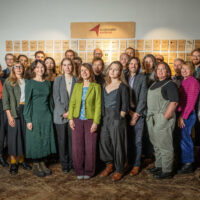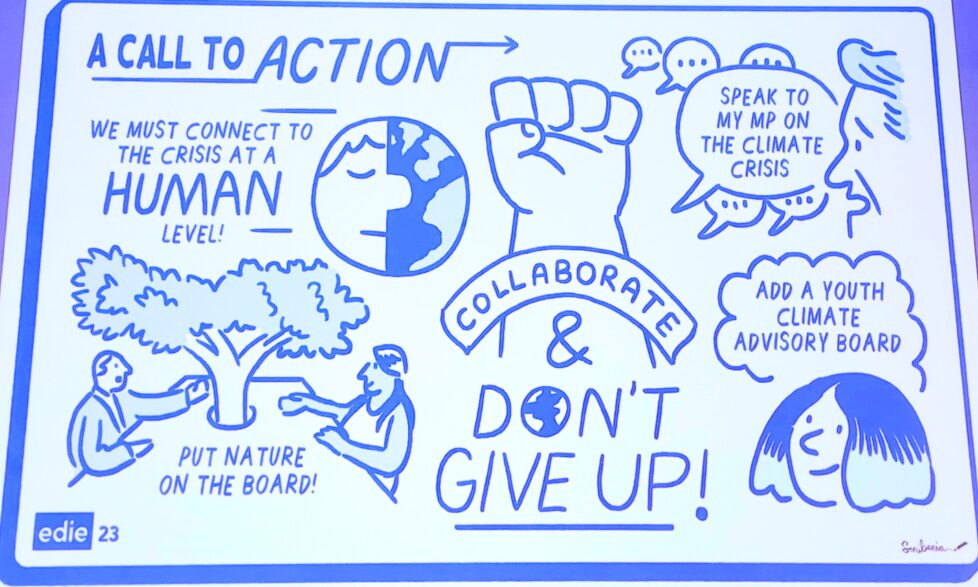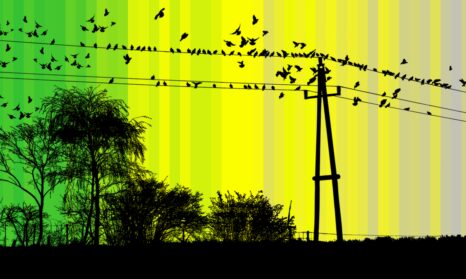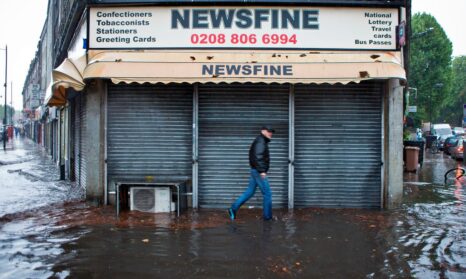edie 2023: why it’s time to give our inspirational natural world a seat in the boardroom
The atmosphere at edie’s 2023 ‘leadership through crisis’ conference was like nothing I have experienced. Held in London last Wednesday and Thursday, the conference rightly brought the emergency facing the world’s natural habitats to the fore – we have lost two-thirds of wildlife populations since 1970, and this loss will continue at an exponential rate unless we act now.
There was a huge sense of urgency among attendees and an unspoken feeling of solidarity and understanding. From the stage, we heard optimism that, as a species, we have the right skills and technology to achieve rapid change, if businesses can embed care for the natural world in their key decision-making processes.

Learn to work with your rivals
Businesses may regard each other as fierce rivals but, in his keynote speech, former Unilever CEO Paul Polman argued they should not seek a competitive advantage on issues that affect the future of humanity. Instead, they should work together to solve key, collective challenges, as this is the only way to achieve change at the pace we need. From formal business groups to informal networks and academic initiatives, there are so many opportunities through which businesses can share knowledge and set sector-level strategies.
As a species, we have the right skills and technology to achieve rapid change, if businesses can embed care for the natural world in their key decision-making processes
Your stakeholders are not always in the room
There is a wealth of silent – or silenced – stakeholders that are impacted by any business. Paul Polman reminded us that one group that never gets to vote on business decisions are future generations. What impact will decisions you make now have on people who will be alive in seven generations’ time?
We had the pleasure from hearing from young climate activists Mikaela Loach and Clover Hogan, voices I have not heard before that were incredibly valuable and thought provoking. We also spoke about indigenous people – those who have protected and nurtured our natural environment for centuries, and yet are so often overlooked.
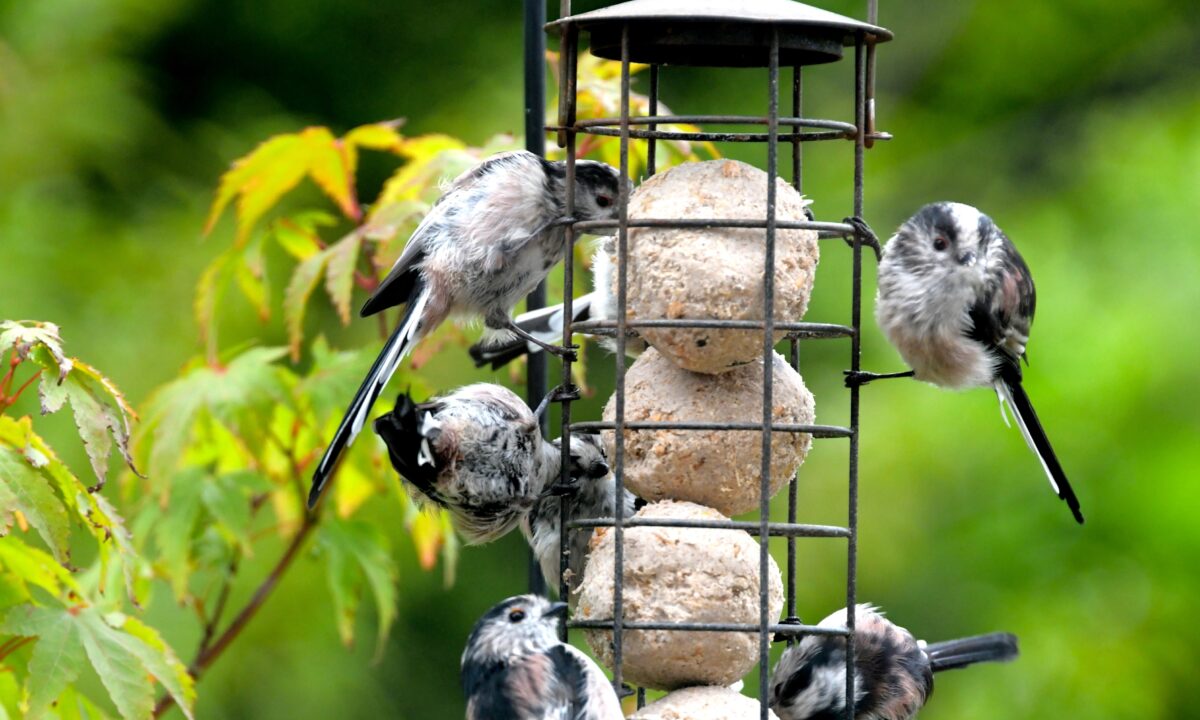
What if nature was a board member, profiting from businesses’ success?
Phillipe Joubert from Earth on Board explained that the “board as usual” is dead, and inaction is already hitting business’ balance sheets. So-called ‘shadow boards’ or ‘youth boards’ are a way to ensure the top team’s focus, agenda, and personnel reflect what is needed to address the climate challenge.
The case study that struck me the most was from Faith in Nature, who, with the help of Lawyers for Nature, has legally given nature a seat on its Board; together with a vote and a voice. It shares its process to encourage every business to ensure “nature’s rights are represented, and respected”.
Another was from Alex Beasley of Patagonia, who explained what has changed now it has committed to giving 98% of its profits away to help the environmental crisis – “everything, and nothing”. With news that Aviva is committing £38m to the Wildlife Trusts to preserve and restore British rainforests, it seems there is change afoot.
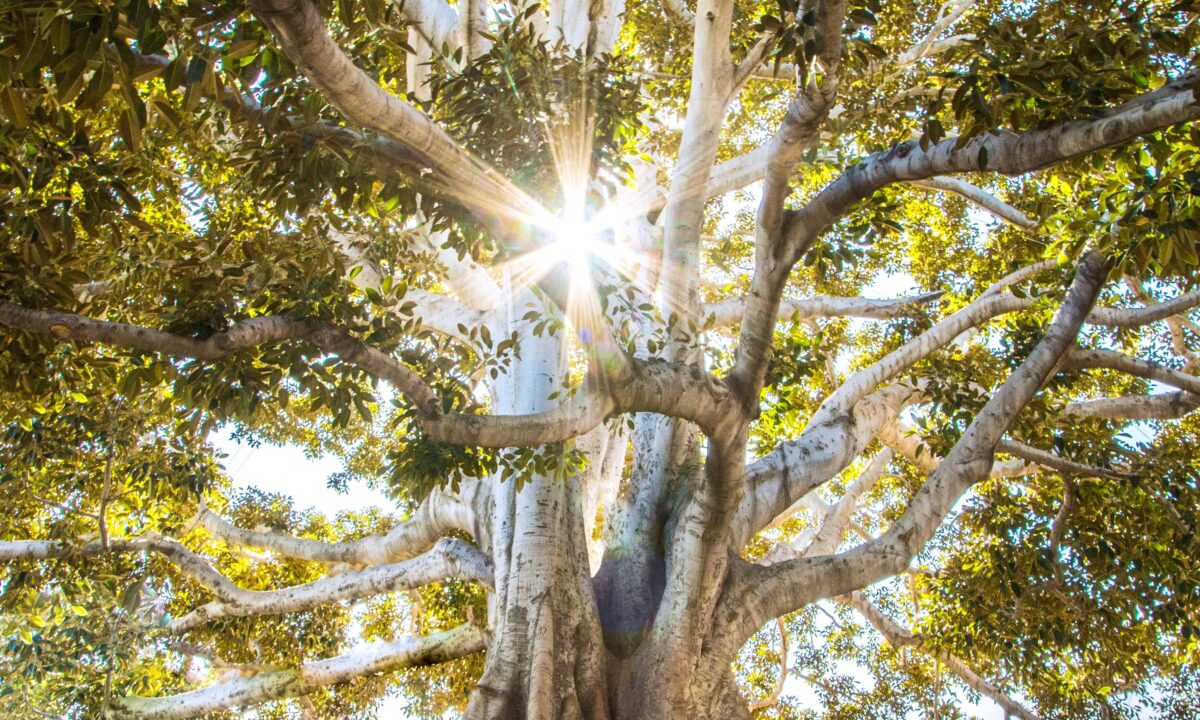
We must disentangle nature restoration and preservation from ‘carbon offset’ schemes
We must not let disingenuous ‘carbon offset’ schemes become confused with true nature restoration projects that aim to restore biodiversity and create critical carbon sinks. Businesses should always seek partnerships with organisations that have nature at the core of their values, rather than schemes that simply rely on large-scale tree planting to balance the carbon number on an accounting sheet.
To help businesses move away from ‘carbon tunnel vision’, and questionable offsets, the link between the boardroom and the natural world must be made clearer, the risks of business-as-usual explained with greater urgency, and the connection between the products we consume, and the extraction of natural resources, made transparent.
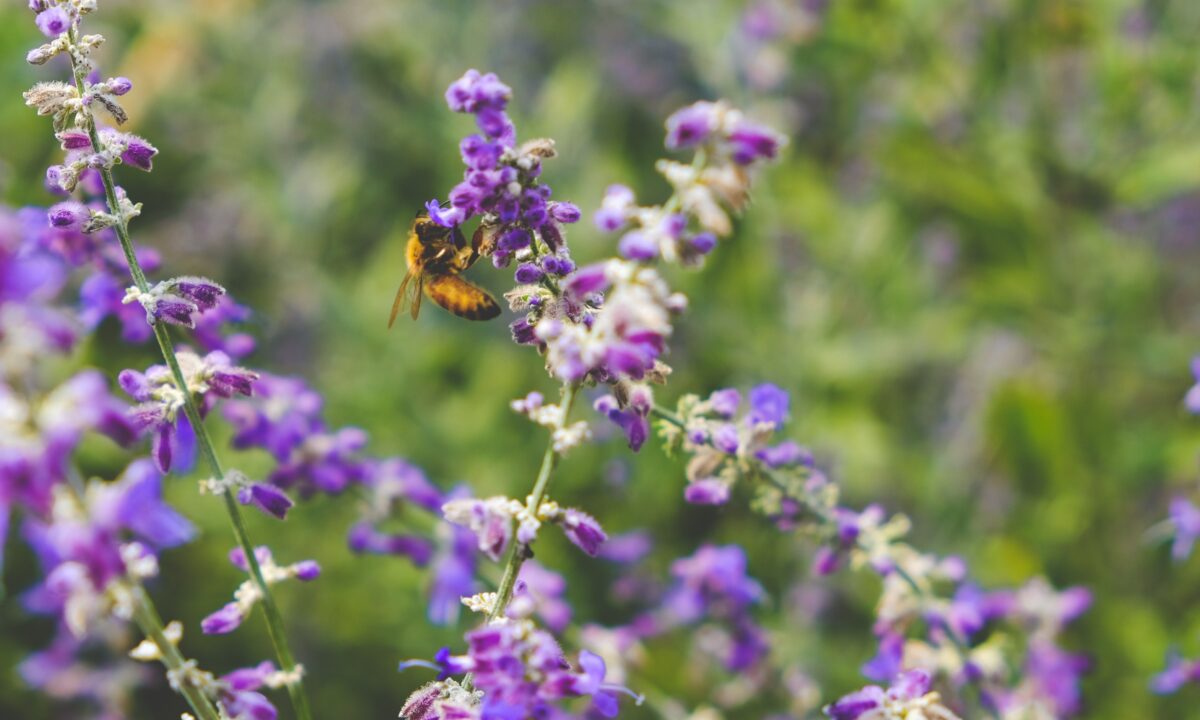
Everything we produce and consume relies on nature. Businesses and consumers must be open to tackling that head on.
Harness the power of nature to inspire
Last Thursday, away from edie, our CEO Sue Riddlestone and I were lucky enough to attend the premier of Wild Isles, Silverback Films’ BBC series highlighting British nature. Between clips of puffins, leeches, and bees on broomsticks (you read that right – it’s fantastic!), we chatted to everyone from a lady who hand-reared dormice to Hamza Yassin, the Strictly Come Dancing winner and nature cameraman. Even Sir David Attenborough made an appearance, and the positivity and passion for our natural world could be felt humming through every corner of the room.
That event brought me back from despair over what we have done to our planet, reignited my passion to restore our natural world, and my belief that this is possible. Sunday evening’s announcement from New York, that the United Nations member states had agreed the High Seas Treaty, pledging to protect 30% of our oceans by 2030 to allow them to recover and regenerate, provided further hope.
The contribution of our natural world must be recognised and celebrated, in our boardrooms, and on the TV in our living rooms. As Patagonia Yvon Chouinard has observed, we must recognise nature as “the source of all wealth” rather than something merely to be transformed into wealth for investors.
Everything we produce and consume relies on nature. Businesses and consumers must be open to tackling that head on. Businesses need to shift their perspective to think bigger and longer term, to collaborate and experiment, and to listen to those who have not been heard up until now.
The cost of not doing so will be the destruction of the only source of wealth we have.
Unsure of where to begin? See our blog on how businesses can support nature.
Discover how we can help by exploring our full range of consultancy services in our 2023 brochure.
Photos by Bill Eccles, Jeremy Bishop, Scotty Turner, all via Unsplash
